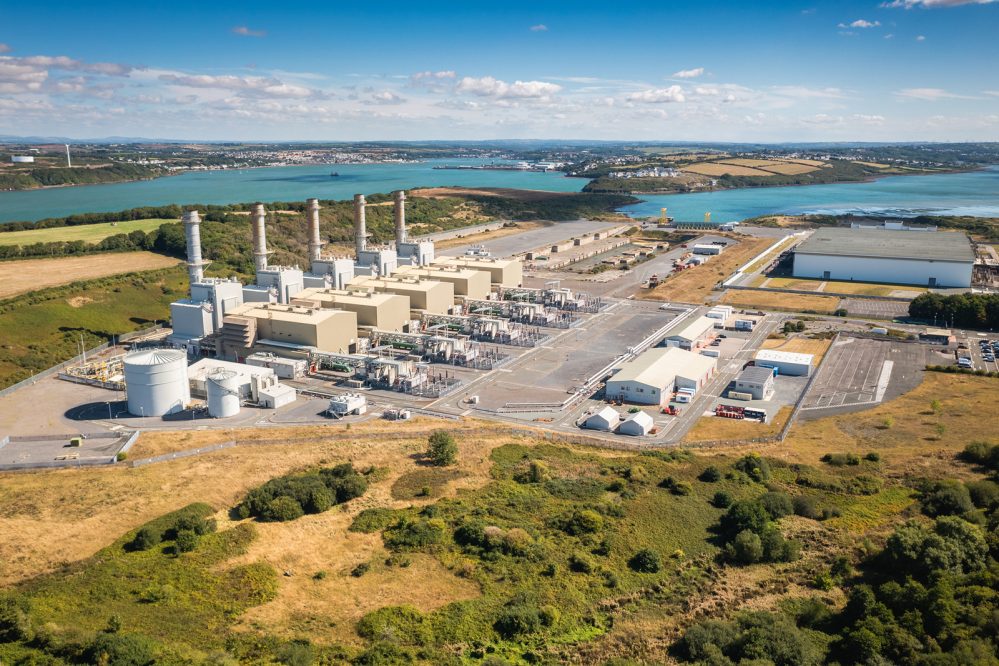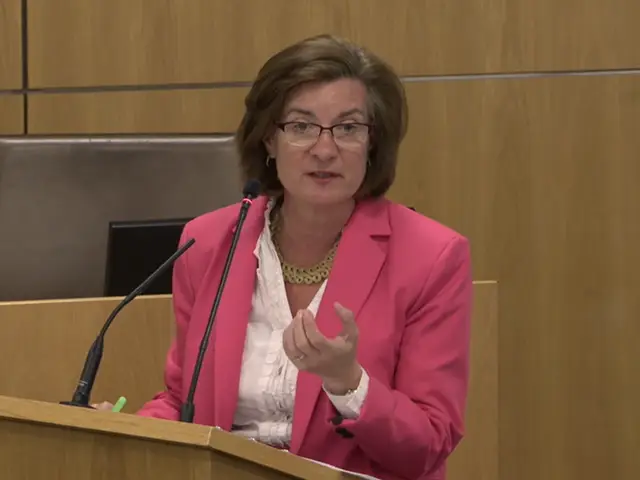News
Green hydrogen plant approved for Pembrokeshire

PEMBROKESHIRE has taken a monumental step forward in the green energy revolution with the approval of a major green hydrogen plant.
RWE, Wales’s largest power producer, confirmed this week (Dec 17) that its Pembroke Green Hydrogen plant has been granted full planning permission by Pembrokeshire County Council.
The proposed facility will feature a 100MWe electrolyser capable of producing around two tonnes of hydrogen every hour. This green hydrogen is set to play a key role in decarbonising industrial activities across South Wales.
A local push for net zero
The project is a cornerstone of RWE’s Pembroke Net Zero Centre, which aims to harness Pembrokeshire’s rich energy heritage to drive forward innovation in renewable energy. Once operational, the plant is expected to cut carbon emissions by approximately 93,000 tonnes each year — the equivalent of taking 18,600 cars off the road annually.
The investment will also safeguard existing jobs at the Pembroke Power Station, inject significant economic benefits into the area, and create new opportunities during both the construction and operational phases.
Sopna Sury, Chief Operating Officer for Hydrogen at RWE Generation, praised the local authority for its collaborative approach:
“It is fantastic to have reached this milestone. Pembrokeshire is firmly positioning itself as a leader in the green hydrogen revolution, driving the energy transition and innovation in renewable technology.”
Securing Pembrokeshire’s energy future
The Pembroke Green Hydrogen project underscores RWE’s integral role in the South Wales Industrial Cluster (SWIC), a coalition working to decarbonise industries across the region. SWIC has been pivotal in securing development funding and shaping the plant’s roadmap to success.
Local MP for Mid and South Pembrokeshire, Henry Tufnell, hailed the approval as a major breakthrough:
“This project highlights Pembrokeshire’s ability to lead in renewable energy technologies, delivering solutions that not only cut emissions but also ensure a sustainable energy future. The Pembroke Green Hydrogen plant is a game-changer for our region and our nation.”
Leading the charge in clean energy
RWE’s commitment to renewable energy is unmatched, with a diverse portfolio spanning onshore and offshore wind, hydro, and biomass. The Pembroke Green Hydrogen plant will cement Pembrokeshire’s reputation as a hub of clean energy innovation, contributing significantly to the UK Government’s ambitious target of 10GW of green hydrogen capacity by 2030.
With planning approval secured, the focus now shifts to finalising government funding and investment decisions. The Pembroke Green Hydrogen plant is poised to be a defining feature of Pembrokeshire’s energy landscape and a vital step toward achieving net-zero emissions.
News
Davies and Morgan clash over policing powers and terror response in Senedd exchange

CONSERVATIVE MS says breaking up UK would ‘benefit criminals’ as First Minister insists Wales would still rely on cross-border co-operation
A ROW over whether policing powers should be devolved to Wales spilled onto the Senedd floor as a senior Conservative warned that separating from UK-wide structures could leave the country exposed to terrorism and serious crime.

During questions to the First Minister in Senedd Cymru, Andrew RT Davies pressed ministers on whether law and order is better delivered from Westminster rather than Cardiff Bay.
Opening the exchange, Mr Davies said that although he and the Welsh Government disagreed on where policing powers should sit, they should both accept that dismantling the United Kingdom would weaken security.
He told the chamber that if “separatists had their way and they broke up the United Kingdom, policing would be fundamentally weakened in these islands and the criminals will benefit from it”.
He asked the First Minister to agree that the UK provides the strongest framework for keeping communities safe through joint working between England, Wales, Scotland and Northern Ireland.
“The co-operative working and that strong union, working together… protects the citizens of this great country of ours,” he said, urging ministers to reject what he called a “narrow, separatist, independent argument”.

‘Strong devolution in a strong UK’
Responding, Eluned Morgan said her government was not pursuing devolution as a stepping stone to independence.
“We want to see strong devolution in a strong UK,” she said, adding that Labour remained committed to improving services rather than chasing constitutional change for its own sake.
She argued that reforming how policing is governed in Wales could improve accountability and outcomes for the public, particularly as discussions continue over replacing the current police and crime commissioner model.
“We want to see change when it comes to policing… because we want to see better provision for the people in Wales,” she told MSs.
Terrorism expertise ‘not something you could replicate’
However, the First Minister acknowledged that certain specialist capabilities, particularly counter-terrorism, would still require close links with the rest of the UK.
“It of course makes sense for us to co-operate across the border when it comes to policing, when it makes sense,” she said.
“Just think about terrorism; we’ll never have the kind of absolute expertise in terrorism that you may get in a place like London. We would have to work with them and depend on them—not something you could do in an independent Wales.”
Her comments prompted Mr Davies to argue that this reliance showed why policing should remain reserved to Westminster.
He later said the admission demonstrated “the dangers of putting the Senedd in charge of policing”, claiming Wales could end up dependent on external support during major incidents.
Long-running debate

Policing and criminal justice are among the few major public services not currently devolved to Wales, with responsibility resting with the UK Government.
Supporters of devolution, including Plaid Cymru, argue that Welsh control would allow policies better tailored to local needs.
Opponents say fragmenting the system could weaken intelligence sharing and increase costs, particularly for specialist units tackling organised crime and terrorism.
The exchange underlines how the issue remains a political dividing line in Cardiff Bay, with both sides framing the argument around public safety rather than constitutional theory.
For now, any change would require agreement from Westminster, meaning the debate is likely to continue long before any powers formally shift.
Crime
Pembroke Dock woman admits breaching community order

Magistrates revoke sentence after missed appointments
A PEMBROKE DOCK woman has admitted breaching the terms of a community order.
Shannon Charge, aged 30, of Pater Court, appeared before Haverfordwest Magistrates’ Court on Monday (Feb 2).
She admitted failing to attend a scheduled probation appointment and a drug dependency appointment.
Magistrates revoked the existing community order and ordered her to pay £60 in court costs.
The court heard the order related to earlier offences, for which she had been made subject to rehabilitation and drug treatment requirements. A further review hearing is listed for March 2.
Crime
Milford Haven man given extra unpaid work after breaching court order

Magistrates add hours after missed appointments
A MILFORD HAVEN man has been ordered to complete extra unpaid work after breaching the terms of a community order.
Peter Jones, aged 33, of Precelly Place, appeared before Haverfordwest Magistrates’ Court on Monday (Feb 2).
He admitted failing to attend scheduled unpaid work and a probation appointment earlier this month.
Magistrates varied the order, imposing an additional 10 hours of unpaid work. Jones was also ordered to pay £60 in court costs.
The court heard the original community order followed an earlier conviction.
-

 Health5 days ago
Health5 days agoConsultation reveals lack of public trust in health board
-

 News6 days ago
News6 days agoCaldey still unsafe, survivors warn — despite Abbey’s reform claims
-

 Community6 days ago
Community6 days agoPembrokeshire students speak at national Holocaust Memorial Day event
-

 News2 hours ago
News2 hours agoPrincess of Wales visits historic Pembrokeshire woollen mill
-

 News6 days ago
News6 days agoKurtz raises Gumfreston flooding in the Senedd as petition deadline nears
-

 Crime4 days ago
Crime4 days agoPembroke man accused of child sex offences sent to Swansea Crown Court
-

 Community5 days ago
Community5 days agoCampaign to ‘save’ River Cleddau hits over 2,200 signatures
-

 Education6 days ago
Education6 days ago‘Vulnerable teen’ questioned by police at Milford Haven School
























